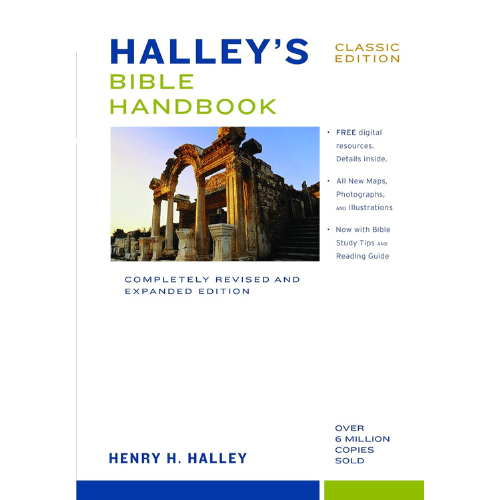Parables are some of Jesus’ most memorable ways to teach us about God’s Kingdom. Through simple stories, Jesus reveals profound truths. Today, we’re diving into the parable of the pearl merchant, found in Matthew 13:45-46. This parable, much like the one about the hidden treasure (Matthew 13:44), speaks to the incredible value of God’s Kingdom.
Imagine a merchant searching for the finest pearls. When he finds one of extraordinary value, he sells everything he owns to buy it. Jesus uses this story to teach us about the cost and worth of God’s Kingdom. It’s a beautiful reminder that some things are so precious, they’re worth sacrificing everything for.
In this Bible study, we’re going to explore what the parable of the pearl merchant means for us today. Together, we’ll uncover the lessons of sacrifice, value, and commitment that Jesus wanted His followers to grasp. Let’s discover why God’s Kingdom is worth our everything and what this truly means for our daily lives.
Understanding Parables
A parable is a simple story used to illustrate a moral or spiritual lesson. Jesus often used parables, like the parable of the pearl merchant, to teach about God’s Kingdom. These stories were relatable to His audience and helped convey deeper truths in a memorable way.
Jesus spoke to people who were familiar with everyday life in an agricultural society. They understood things like farming, fishing, and even the thrill of finding hidden treasures. In a world without banks, people would sometimes bury valuables in fields for safekeeping. This made the imagery of hidden treasures and precious pearls resonate deeply with those listening to Jesus.
The parable of the pearl merchant used something as ordinary as buying and selling to point to something extraordinary—the priceless value of God’s Kingdom. By using familiar, everyday situations, Jesus allowed His audience to grasp spiritual truths that might otherwise have seemed abstract or distant.
Parables were incredibly effective because they engaged both the mind and heart. They were layered, meaning that those who were truly seeking could understand the deeper lessons, while others heard only a simple story. In using parables, Jesus invited His followers to think, reflect, and ultimately discover the truths of God’s Kingdom for themselves.
Halley’s Bible Handbook, Classic Edition
The bestselling Bible handbook of all time with millions of copies sold, the Halley’s Bible Handbook makes the Bible’s wisdom and message accessible to everyone.
The Story of the Hidden Treasure
The parable of the hidden treasure is found in Matthew 13:44, right alongside the parable of the pearl merchant. In this story, Jesus tells of a man who finds a hidden treasure buried in a field. The treasure is so valuable that he immediately covers it up, and then goes out and sells everything he owns to buy that field.
The key details here are striking: the man is not looking for treasure, but stumbles upon it. Once he realizes what he has found, his actions are swift and decisive. He sells all his possessions to buy the field, ensuring the treasure becomes his. The sacrifice is great—selling everything—but it’s made with joy, knowing the treasure is worth far more than what he gives up.
This parable shows the immense value of God’s Kingdom. It’s like finding something so incredible that it’s worth any cost to have it. Just like the parable of the pearl merchant, where the merchant sells all he has for one pearl of great value, this story teaches that God’s Kingdom is worth everything we have. It’s a call to see God’s Kingdom as our most precious pursuit, worthy of total commitment.
What the Treasure Represents: The Value of God’s Kingdom
In the parable of the hidden treasure, the treasure itself is deeply symbolic. It represents the Kingdom of God—something of immeasurable worth that far exceeds anything else we might pursue in life. When Jesus compares God’s Kingdom to hidden treasure, He’s highlighting how precious, rare, and life-changing it is. Just as the man in the story stumbles upon the treasure and instantly recognizes its value, so too must we recognize the unmatched worth of the Kingdom.
Like the parable of the pearl merchant, where the merchant finds one pearl of great value and sells everything he owns to acquire it, the hidden treasure emphasizes the extraordinary value of what Jesus offers us. God’s Kingdom is not just about future hope or heaven—it’s the rule and reign of God in our lives here and now, giving us true purpose, peace, and fulfillment.
The man’s willingness to sell everything to buy the field teaches us about the cost of obtaining the Kingdom. Following Jesus and embracing God’s Kingdom often requires sacrifice—setting aside our personal ambitions, material wealth, and even comfort. The man doesn’t hesitate to give up all he has because he knows that what he is gaining is worth infinitely more. The same is true for us as believers: when we realize the incredible value of knowing God and being part of His Kingdom, nothing else compares.
This parable challenges us to reassess our priorities. Are we willing to give up anything that stands in the way of fully experiencing God’s Kingdom? It’s not that material possessions or worldly pursuits are inherently wrong, but their value pales in comparison to the treasure that is life with God. Jesus wants us to see that the Kingdom is worth our complete devotion—our everything. Just like the merchant in the parable of the pearl merchant, we are invited to joyfully “sell” what we have in exchange for the priceless gift of God’s presence and the fulfillment of His purpose in our lives.
The Field and Sacrifice: True Commitment
In the parable of the hidden treasure, the field plays a significant role. The treasure is hidden within it, and the man must purchase the field to gain the treasure. This field represents the reality that God’s Kingdom often comes with a cost. It isn’t handed to us without any commitment on our part—it requires our investment, our willingness to give up what we have.
The man’s choice to sell all he has emphasizes the cost of following Jesus. Like the parable of the pearl merchant, where the merchant gives up everything for a pearl of great value, the hidden treasure parable challenges us to examine our own willingness to sacrifice. The man joyfully sells everything, knowing what he gains is far greater. This reflects the idea that entering God’s Kingdom often involves laying down our own desires, ambitions, and even our comforts.
Jesus frequently spoke about the cost of discipleship. In Luke 9:23, He says, “Whoever wants to be my disciple must deny themselves and take up their cross daily and follow me.” This is the kind of all-in commitment the man in the parable demonstrates. Similarly, in Matthew 16:24-25, Jesus teaches that whoever wants to save their life must lose it for His sake. This means fully surrendering ourselves—holding nothing back.
The parable encourages us to count the cost and recognize that the reward—the Kingdom of God—is worth every sacrifice. Whether it’s giving up old habits, relationships that hinder our faith, or personal plans, following Jesus means committing entirely to Him. Like the parable of the pearl merchant, this story calls us to a joyful sacrifice, knowing that what we gain—the presence of God, His guidance, and eternal life—is far more valuable than anything we could ever give up.
The Joy of Finding the Kingdom
One of the most striking aspects of the parable of the hidden treasure is the joy the man experiences when he finds it. The discovery of the treasure fills him with such happiness that he willingly sells everything he has. This joy is a powerful response to the realization of God’s Kingdom—when we truly see its worth, our hearts overflow with gladness.
Like the parable of the pearl merchant, where the merchant finds a pearl of such immense value that he sacrifices everything for it, the hidden treasure parable reminds us that embracing God’s Kingdom brings profound, transforming joy. This joy comes from knowing that we have found something of eternal significance—something that fills the deepest longings of our souls.
For believers today, this joy manifests in many ways. It can be seen in the peace that comes with knowing we are loved and accepted by God, regardless of our past. It appears in the satisfaction of living a life with purpose, aligned with God’s will. It also shows up in our willingness to share the good news with others, eager for them to experience the same joy.
The man’s joyful sacrifice teaches us that God’s Kingdom is not a burden but a blessing worth every cost. Just like the parable of the pearl merchant, this story invites us to embrace the joy of finding something worth giving our all for—a joy that transforms our lives and gives us hope, peace, and fulfillment in God.
Insights on the Nature of God’s Kingdom
The parable of the hidden treasure reveals significant insights about the nature of God’s Kingdom. One of the key lessons is that the Kingdom is both hidden and precious. Just like the man in the story who stumbles upon the treasure buried in a field, the Kingdom of God is not always immediately apparent—it’s often concealed beneath the surface of everyday life, waiting to be discovered by those willing to seek it out.
Similarly, the parable of the pearl merchant teaches us about the value of finding something precious through diligent pursuit. In that parable, the merchant is actively searching for pearls of great value, and when he finds one of surpassing worth, he sacrifices everything to obtain it. These parables illustrate that the Kingdom of God is not handed to us without effort. It requires an intentional seeking heart—whether it is stumbled upon unexpectedly, like the hidden treasure, or found through diligent search, like the pearl.
God’s Kingdom is precious, but it often requires a discerning heart to recognize its worth. The hidden nature of the treasure suggests that God’s Kingdom is not always obvious. It may be obscured by the distractions of daily life, worldly values, or our own ambitions. Many people might pass by, unaware of its significance, simply because they aren’t actively seeking spiritual truth. Jesus’ teaching emphasizes that those who are spiritually hungry, those willing to dig deeper, will discover the incredible value of what God offers.
This idea is echoed in Jesus’ words from Matthew 7:7: “Seek and you will find; knock and the door will be opened to you.” The Kingdom is available to all, but it must be sought after with a sincere heart. Those who aren’t actively seeking, or who dismiss spiritual things as unimportant, are likely to miss it entirely. The parable of the pearl merchant and the hidden treasure both remind us that God’s Kingdom requires our attention, our search, and ultimately our willingness to embrace it above all else.
This precious Kingdom is worth everything, but it remains hidden to those who aren’t looking. It challenges us to see beyond the ordinary, to seek with intention, and to value the spiritual treasures that only God can provide.
What This Means for Us Today
The parable of the hidden treasure, much like the parable of the pearl merchant, offers us a clear and powerful challenge: to prioritize God’s Kingdom above all else. For Christians today, this means examining what we value most and being willing to let go of anything that stands in the way of a deeper relationship with God.
One practical application is assessing our daily priorities. Are we dedicating time to seek God’s Kingdom—through prayer, studying His Word, and living out our faith? Or are we allowing our schedules, careers, or personal goals to push God to the margins? The man in the parable sold all he had to acquire the treasure; this teaches us that God’s Kingdom should take precedence over everything else. Our commitment to God should be evident in the way we allocate our time, energy, and resources.
Another important takeaway is the concept of sacrifice. Just like the merchant in the parable of the pearl, who sold everything for a single pearl of immense value, we are called to evaluate what we are willing to “give up” to fully experience God’s Kingdom. This may mean giving up certain habits, pursuits, or even relationships that hinder our spiritual growth. It might also mean giving more generously, serving others selflessly, or stepping out of our comfort zones to follow God’s call.
God’s Kingdom is priceless, and it comes with an invitation to surrender our lives entirely to God’s purpose. Today, we are challenged to recognize the incomparable value of this treasure and to joyfully make sacrifices for it. By placing God’s Kingdom first, we can experience the fullness of His presence, purpose, and joy—treasures far greater than anything this world offers. What are you willing to give up today to embrace the precious gift of God’s Kingdom?
Comparison with the Parable of the Pearl of Great Value
The parable of the pearl merchant (Matthew 13:45-46) shares striking similarities with the parable of the hidden treasure. In both parables, there is an emphasis on immense value and the sacrifice needed to obtain something priceless. In the hidden treasure parable, a man finds treasure unexpectedly and sells everything he owns to buy the field containing it. In the pearl parable, the merchant is actively searching for fine pearls and, upon finding one of great value, also sells all he has to acquire it.
Both stories teach us about the value of God’s Kingdom—it is worth any cost. The willingness to sacrifice everything highlights the importance of prioritizing God’s Kingdom above all else.
However, there are also differences that offer unique insights. In the hidden treasure parable, the discovery seems almost accidental, suggesting that sometimes God’s Kingdom surprises us when we aren’t actively looking for it. In contrast, the parable of the pearl merchant shows an intentional pursuit, indicating that God’s Kingdom can also be found by those diligently seeking truth. Together, these parables remind us that God’s Kingdom is available both to the seekers and to those who are open to discovering it in unexpected ways.
Parable of the Pearl Merchant Conclusion
In the parable of the pearl merchant and the parable of the hidden treasure, Jesus illustrates the unmatched value of God’s Kingdom. Both stories remind us that God’s Kingdom is worth more than anything else we could ever have. It’s a treasure that requires our full commitment, calling us to joyful sacrifice and a complete reshuffling of our priorities.
The man’s willingness to sell all he had for the treasure, and the merchant’s sacrifice for the pearl of great value, highlight the worth of knowing God and being part of His Kingdom. The joy they experienced upon finding these treasures reflects the profound fulfillment that comes with embracing God’s purpose for our lives.
God’s Kingdom is available to those who are willing to seek, discover, and value it above all else. What are we willing to give up to experience the fullness of God’s Kingdom? Are we ready to joyfully invest our whole lives for something so eternally precious?
Let us live with that kind of devotion, recognizing that nothing else compares to the incredible gift of God’s presence and the joy found in His Kingdom. Today, let’s make seeking and embracing God’s Kingdom our highest priority.
Frequently Asked Questions (FAQ) About the Parable of the Pearl Merchant
1. What is the meaning of the Parable of the Pearl Merchant? The parable of the pearl merchant teaches that God’s Kingdom is of incomparable value. It’s worth everything we have, and finding it brings true fulfillment.
2. Why did the merchant sell everything for the pearl? The merchant recognized the immense value of the pearl, symbolizing the Kingdom of God. He was willing to give up everything because he knew what he was gaining was far greater.
3. How does the Parable of the Pearl relate to our lives today? The parable encourages us to prioritize God’s Kingdom above all else. It challenges us to reflect on what we value most and whether we’re willing to sacrifice for God.
4. What are the similarities between the Parable of the Pearl and the Parable of the Hidden Treasure? Both parables highlight the immense value of God’s Kingdom and the need for sacrifice. They show that finding God’s Kingdom is worth any cost.
5. Why is the Kingdom of God described as a pearl of great value? The pearl symbolizes something precious, beautiful, and rare. Jesus used it to illustrate that God’s Kingdom is worth everything we have—it’s the most valuable pursuit in life.





